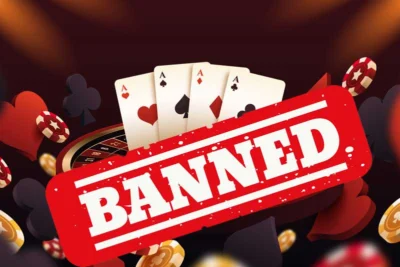
New Delhi, India - Aug 19, 2025 (UTC) - The Indian government is set to introduce a comprehensive ban on real-money gaming through the proposed Promotion and Regulation of Online Gaming Act, 2025. This legislation aims to outlaw all forms of online games involving monetary stakes, regardless of whether they are based on skill or chance. The move comes in response to escalating public concerns over financial losses, addiction, and associated harms, including reported suicides linked to gaming debts. The bill, which has reportedly been cleared by the Union Cabinet, could be tabled in Parliament as early as this week, marking a significant escalation in regulatory scrutiny of the burgeoning online gaming sector.
Key Provisions of the Proposed Legislation
The draft bill, titled The Promotion and Regulation of Online Gaming Act, 2025, includes several stringent measures:
- Blanket Ban on Real-Money Games: All online games involving real-money stakes will be prohibited, covering both skill-based (e.g., poker, rummy) and chance-based games. This extends to banning advertisements and promotions for such platforms.
- Financial Restrictions: Banks, financial institutions, and payment gateways will be barred from facilitating any transactions related to real-money gaming. This includes fund transfers, authorizations, or settlements.
- Penalties for Violations:
- Companies operating or promoting real-money games could face up to three years in prison, a fine of up to ₹10 million (approximately $115,000), or both.
- Celebrities and influencers endorsing these games may be liable for up to two years in jail or a fine of ₹5 million (around $57,000).
- Regulatory Authority: A dedicated national regulator under the Ministry of Electronics and Information Technology (MeitY) will be established to oversee compliance, distinguish permissible e-sports from banned activities, and enforce the law.
The legislation also addresses national security concerns, such as the potential use of gaming platforms for money laundering and as communication channels for illicit activities.
Reasons Behind the Ban
The government’s decision is driven by mounting evidence of societal harm from real-money gaming. Key factors include:
- Public Health and Safety: Numerous incidents of individuals incurring massive debts, leading to suicides and family distress, have been linked to these platforms. Offshore betting apps, which evade regulations, have exacerbated the issue despite government efforts to block over 357 illegal websites and freeze accounts worth ₹126 crore.
- Regulatory Gaps: Previous attempts at self-regulation failed due to industry conflicts, and a 28% Goods and Services Tax (GST) imposed in 2023—described by the sector as “catastrophic”—did not sufficiently curb problematic practices. The industry has challenged the tax’s retrospective application in the Supreme Court, with rumors of a potential increase to 40%.
- Offshore Competition: Critics argue that the ban could inadvertently benefit unregulated foreign betting firms, as domestic platforms struggle under heavy taxation and now potential prohibition.
State-level actions, such as Tamil Nadu’s upheld ban on real-money games (validated by the Madras High Court) and Karnataka’s proposed regulatory authority, have paved the way for this national approach.
Impact on the Industry
India’s online gaming sector, valued at $3.8 billion in FY 2023–24 with real-money gaming contributing $2.4 billion, faces existential threats:
- Economic Losses: The ban could erase ₹20,000–₹22,000 crore in annual GST revenue for the government and put over 200,000 jobs at risk.
- Business Shutdowns: Major players like Dream Sports, Games24x7, and WinZO—unicorns backed by billions in investments—may shut down operations, as real-money gaming accounts for over 85% of their revenue. Some firms are considering relocating abroad, but nearly all their income is India-derived.
- Investor Concerns: Top investors, including Tiger Global and Kotak, previously warned of $2.5 billion in write-offs from the GST hike alone. The ban could amplify these losses, affecting India’s status as home to the most real-money gaming startups globally.
Industry leaders have criticized the lack of consultation, calling the bill a “gift to offshore betting firms” and urging a rethink to protect domestic innovation.
Reactions and Broader Context
- Industry Response: Anonymous executives from leading startups predict widespread closures, while investors highlight the bill’s potential to decimate unicorns in the sector. On social media platforms like X, discussions emphasize the ban’s implications, with users sharing articles and debating its fairness.
- Government Stance: The IT Ministry has not commented, but sources indicate the bill’s focus on curbing betting risks while promoting non-monetary e-sports.
- Legal Precedents: Ongoing Supreme Court cases, including a reserved judgment on ₹1.5 lakh crore in GST demands and the legality of games like poker, could influence the bill’s fate.
This proposal builds on earlier regulatory efforts, such as amendments to the IT Rules in 2023 aimed at reducing “user harm.” If passed, it could reshape India’s digital economy, balancing protection against innovation in one of the world’s fastest-growing gaming markets.





